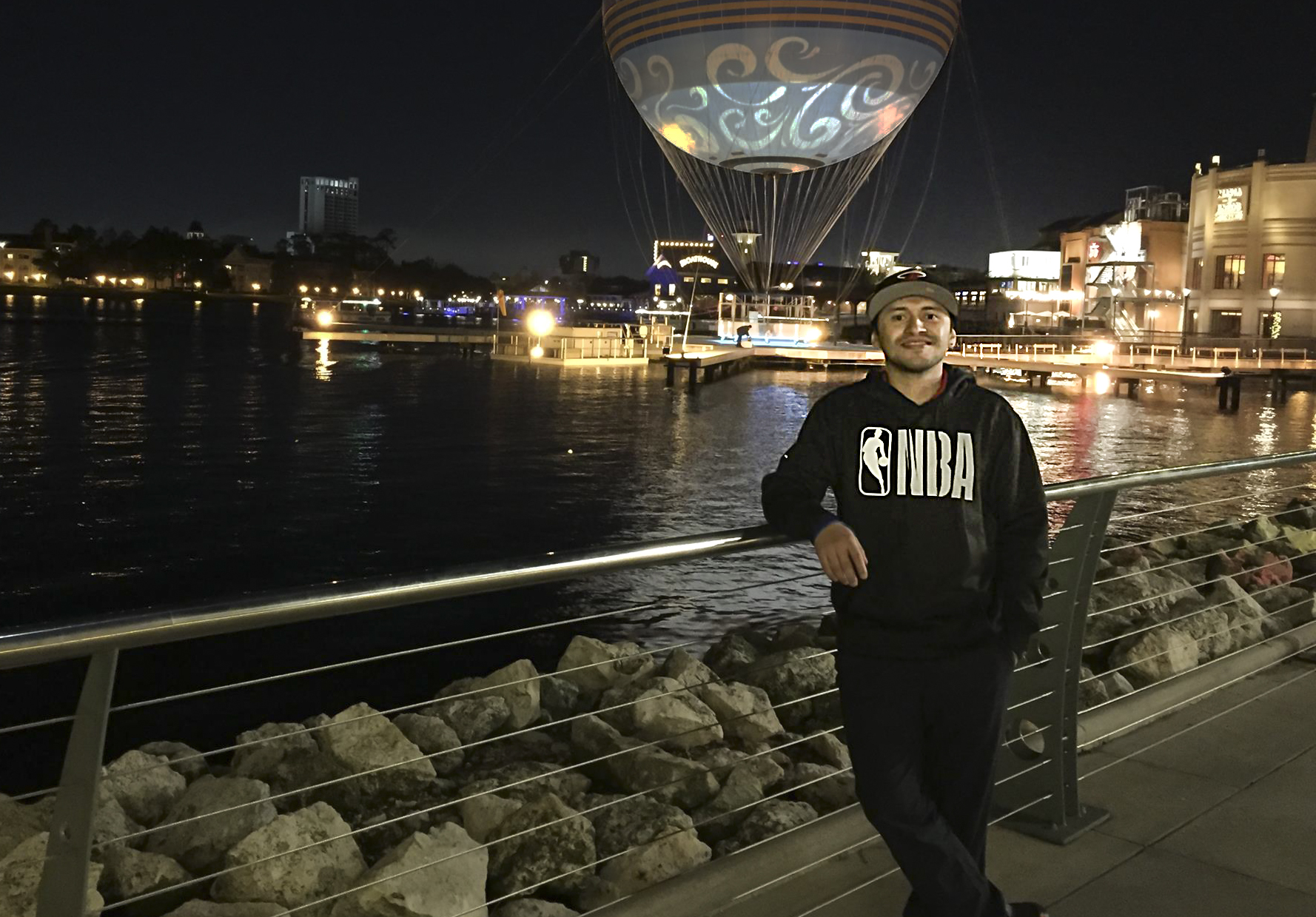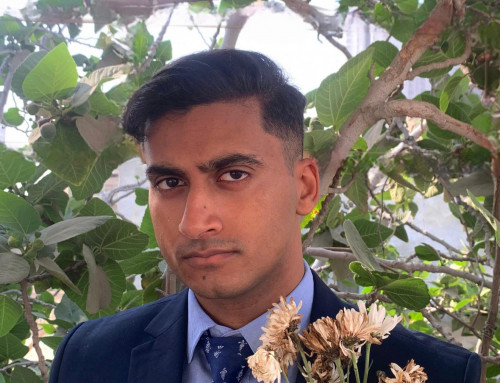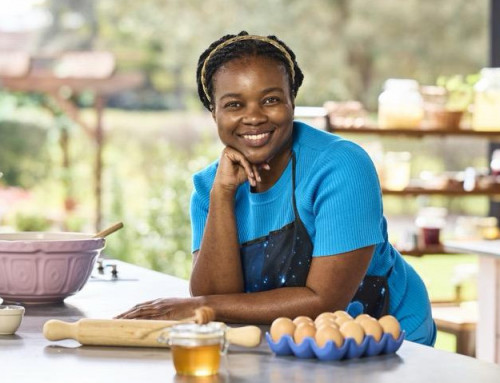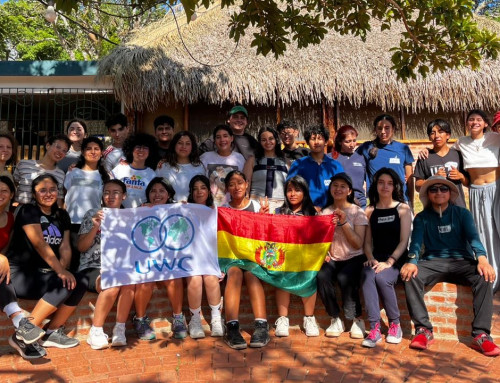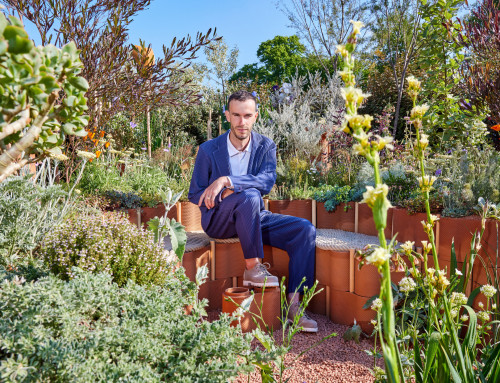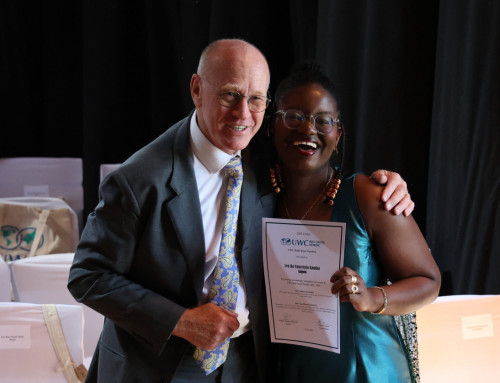I met Juan José, a bright 8-year-old boy, in a soccer training program in Medellin, Colombia in 2013. I still remember Juan José because he was special: he had just recovered from brain tumor treatment. His doggedness to learn by playing soccer and his keenness to share with other kids later became core principles of the out-of-school programs I began to work on. The story of Juan José strengthened my idea that perseverance is the main driver of happiness. In fact, his story paved the way to use my life story to inspire at-risk kids to pursue their dreams. Knowing not from books nor from lectures but from my own experience that inequality feeds on lack of opportunities and poverty, ignited my passion for social issues and is the reason why I am doing a PhD in Education and Policy Studies at the University of Vermont.
Growing up in one of the most dangerous neighborhoods in Bogotá instilled a gloomy idea about life: that the future was not a choice but rather a curse. Looking back at my life before 2002, I was only destined to finish high school, as my parents could not afford to send me to college. It was almost a mathematical formula: Growing up in poverty would mean living in poverty; it would mean making a living to survive. However, that idea changed with a leap of faith: education. In 2003, I was awarded a scholarship to attend the Red Cross Nordic United World College. I could not believe it was me the one on that plane. I remember the only phrase I could say: “Hi my name is Hans and I am from Colombia” (written on a piece of paper in case I would get lost). I still remember how hard it was to do my homework as I was learning English. I still remember how many times I felt like giving up. But I could not. I carried my family, my friends and the hopes of my neighborhood on my shoulders. Thanks to my teachers (especially Mariano, Aseem, Angie, Barbara, Bruce and John Lawrenson) and friends I was able to learn the language and make it, even if I did not believe I could. “Be the eagle my son”, my mentor, friend and role model (Daniel) would say. Though the language was an impediment at first, as I did not speak English, it did not restrain me from learning. In Norway, I learned that education is a process of self-discovery oriented to build resilience and foster leadership.
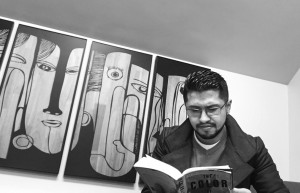 This idea would subsequently be confirmed. Thanks to my teachers and to two special people: our college counsellor – Bruce – and the dean of admission and financial aid of Middlebury College – Mike Schoenfeld – , for believing in me, I got a scholarship to study at Middlebury College in the US. There I became curious about studying issues such as poverty, inequality and cultural diversity and their relationship with social justice.
This idea would subsequently be confirmed. Thanks to my teachers and to two special people: our college counsellor – Bruce – and the dean of admission and financial aid of Middlebury College – Mike Schoenfeld – , for believing in me, I got a scholarship to study at Middlebury College in the US. There I became curious about studying issues such as poverty, inequality and cultural diversity and their relationship with social justice.
In 2009, I attended a three-week professional training program on social development in Washington D.C. These three weeks helped me develop not only the skills to design and evaluate development projects but also to reflect upon how to apply that knowledge to help my community. This profound inquiry took me one step closer to home: I returned to Colombia on a full scholarship to study a master’s in public policy. This transition was not easy because I had to confront myself with a harsh reality: I was attending a private university while still living in a place where most people (included my family and friends) had to struggle to make a living. Being mindful about my position motivated me to learn about inequality and poverty from the standpoint of children and youth in my neighborhood. Hence, I wrote my master’s thesis on substance abuse in young people in Bogotá (including my neighborhood) using a mixed-methods approach. I chose this topic because while growing up, I witnessed many of my friends being trapped in a vicious cycle of drugs and delinquency, but I never understood why. My research took me far: I identified major risk and protective factors associated with substance abuse such as lack of out-of-school programs in vulnerable neighborhoods and lack of family involvement in youth development. Encouraged by the results of my thesis, and after attending a program on social entrepreneurship and leadership at Georgetown University, I implemented (along with my longtime friends and my brother) an after-school project in my neighborhood. Activities ranged from play writing, music composition and sports; to workshops on how to design a life project. The results were stunning: kids began to develop soft skills such as empathy, assertiveness, compassion, ability to listen, perseverance and enthusiasm for the future. This project gave me the chance to travel abroad to speak about leadership and to work in the design of summer school programs for NGOs in Colombia and in Chile.
My work experience has been devoted to understanding social issues. Ranging from volunteer at the Ridderrennet as a UWC student (a winter sports week for people who are visual impaired and have multiple disabilities) to policy advisor, I have always dreamed of unlocking the potential of communities to become opportunity makers. Thus, I have mainly been interested in jobs where I can work with and for communities. I have worked on corporate social responsibility projects for the private sector, social policy analysis and implementation at the national and local government level regarding at-risk youth, education, and community empowerment, NGOs that work with at-risk youth, and teaching English at my own high school. At its core, all these jobs have required me to “candidly put myself into someone else´s shoes” before making a recommendation about a policy or project. By doing so, I have gained a better understanding of my role in society. Though diverse, all my professional experience has taught me one important lesson: the purpose of knowledge is to serve others. In addition, these experiences bolstered my concerns about poverty, inequality and lack of opportunities and their relationship with social justice.
Driven by a heartfelt conviction that only by fully understanding a problem one can come up with solutions, I decided to embark on a new journey: a PhD study. In 2018 I was awarded a Fulbright Scholarship to complete a PhD in Educational Leadership and Policy Studies at the University of Vermont. My dream is to further understand social policy issues related to education and inequality so that I can contribute to better inform policy makers and academia on evidence-based policies and best practices to tackle social problems that involve children and youth. One topic I am interested in is out-of-school programs and its impact on cultivating grit, bridging the learning gap between less advantaged kids and more advantaged kids as well as providing social entrepreneurial skills for unserved youth. I am currently working on an education project in Chile related to summer learning and the use of online courses at the high school level to enhance learning outcomes.
As I look back at how this journey started, I can confirm what Nelson Mandela said about education: “it is the most powerful weapon you can use to change the world”. Indeed, the education that I received at UWC not only changed my life, but it gave me the tools and the grit to want to make the world a better place for young people. Last week I taught my first class at the University of Vermont. It was a class about inclusion policies in education settings in Colombia and the role of social entrepreneurship. Standing there in front of 77 undergraduate students was magical: I remembered the days I spent in my room or at the library trying to do my homework and thinking that I would never make it. Students gave me a great feedback: They said that the class was engaging and that they learned a lot. That day, I reminisced about what Daniel taught me: “be the eagle”. I can only thank God, my family and friends, my neighborhood and UWC for teaching me the importance of caring for others. Without a doubt, UWC instilled this idea that education has a social purpose: To serve others and I will carry that idea as a badge. I think that I have learned to fly.

